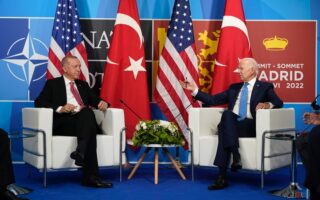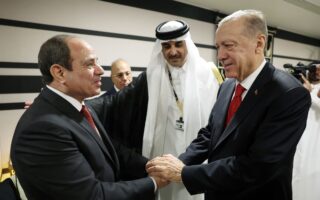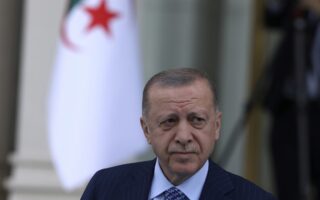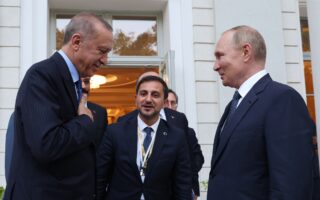The S-400s indicate the limits of change in Turkey
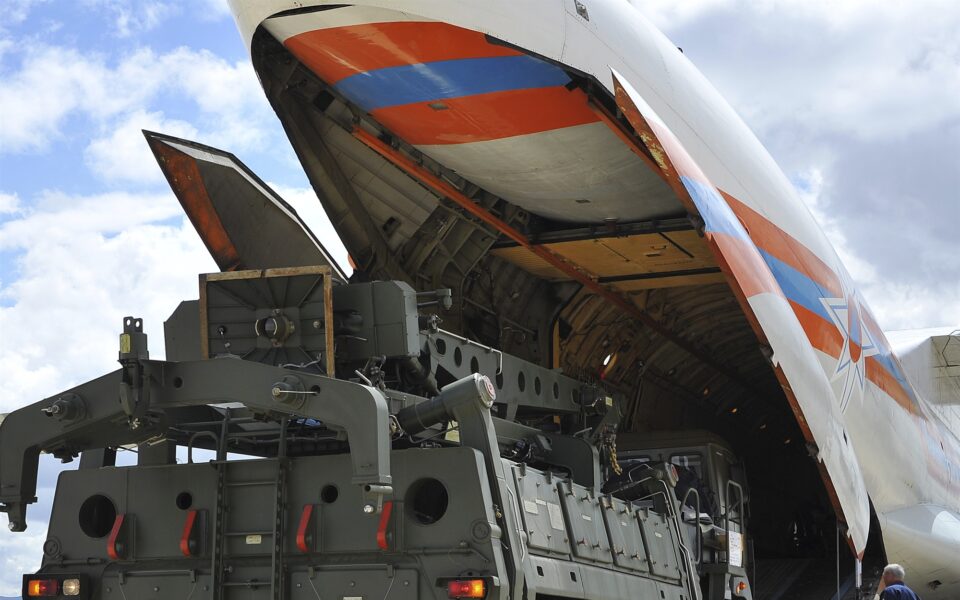
The revelation that Turkey rejected an American proposal to send its Russia-made S-400 missile defense systems to Ukraine came directly from the Turkish foreign minister, Mevlut Cavusoglu. The US proposal had the potential to greatly enhance Ukraine’s defense capabilities while simultaneously resolving the primary issue causing strain in their relationship with Turkey. However, given the current pre-election climate, characterized by rampant nationalism and pervasive conspiracy theories, the proposal was excessively ambitious for the Erdogan government.
The justification for the rejection followed a familiar rhetorical pattern: It was deemed “unacceptable” on the grounds that it would “limit Turkish sovereignty” and “interfere with national security matters.” This response also highlights the constrained scope of potential changes in Turkish foreign policy should Erdogan be re-elected.
Conversely, in their joint programmatic declaration, the six opposition parties have committed to an initiative aimed at reintegrating the co-production program of the F-35 aircraft, contingent upon the removal of the Russian S-400 missiles.
The Erdogan government argues that a reintegration into the F-35 program is unnecessary, instead prioritizing the acceleration of the modernization process for F-16 fighters. It is reasonable to assume that this was part of the exchange offered in the American proposal rejected by Cavusoglu. Simultaneously, the Turkish foreign minister expressed a desire for positive relations with the US, asserting that mechanisms for this have already been established. However, Ankara would be hesitant to undertake a strategic maneuver that could significantly undermine its relationship with Moscow.
However, according to Nick Danforth, an expert on US-Turkey relations who collaborates with the Hellenic Foundation for European and Foreign Policy (ELIAMEP), a government formed by the opposition would also advocate for a more autonomous foreign policy. Ironically, such a government might have a greater chance of success since it would adopt a less hostile stance toward neighboring countries, avoid confrontations with the United States, and refrain from undermining NATO. Additionally, if transferring the S-400 to Ukraine proves problematic due to Turkey’s dependence on Russia, alternative, less provocative methods could be explored to deactivate the S-400 without invoking the ire of Russian President Vladimir Putin.
The State Department has not changed its position on the F-35 and emphasizes that the outcome of the elections in Turkey will have no impact on bilateral relations, regardless of who is elected. It reassures that the US will continue its cooperation with whichever government the Turkish people choose. However, signaling some apprehension for the future, it included an important phrase: “Our only hope is to see a free and fair election based on a democratic process,” State Department deputy spokesperson Vedant Patel told a briefing on Monday.
Katerina Sokou is non-resident senior fellow at the Atlantic Council. She is also a research fellow at ELIAMEP, who has been awarded the Research Fellowship on “Greek-American Relations” in memory of Theodore Couloumbis.
